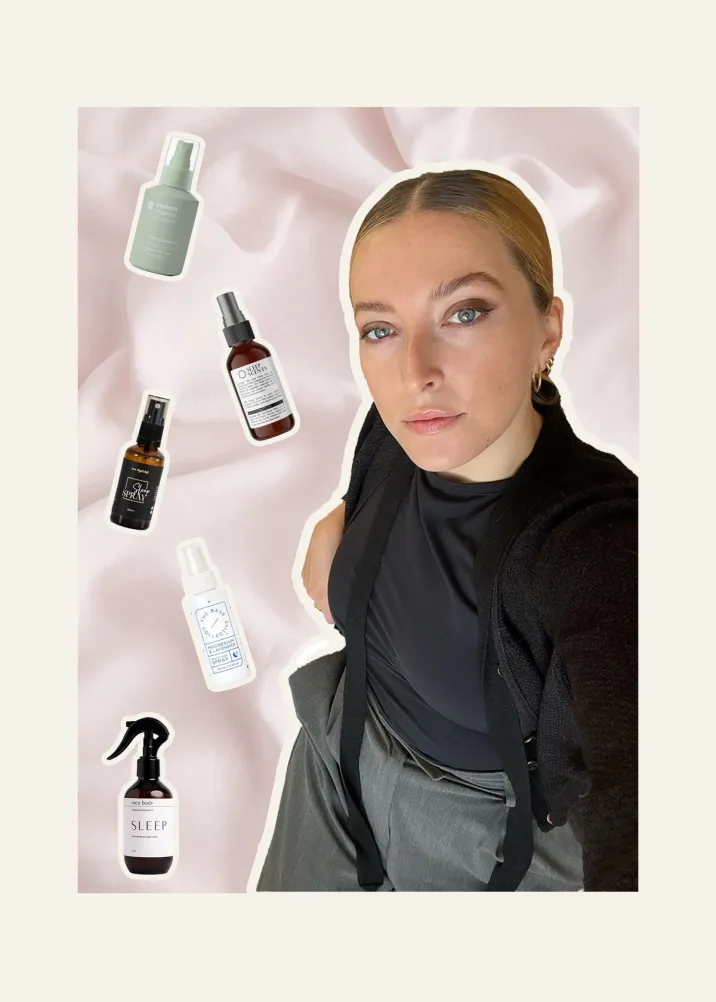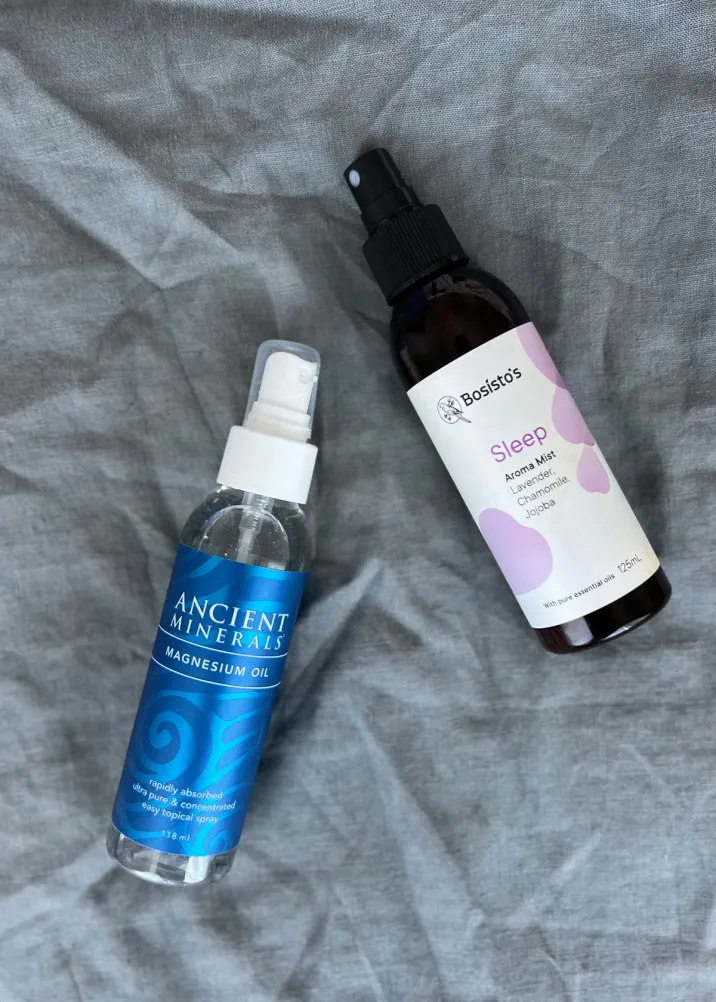
Some people swear by a light spritz of essential oils on their pillow each night.
What Are Sleep Sprays, and Will They Help Me Fall Asleep Faster?
Some people swear by a light spritz of essential oils on their pillow each night.
People will try many things to get the best night’s sleep possible: meditation, rigorous sleep hygiene routines, excessive exercise, eliminating coffee, and using eye masks and blackout curtains, just to name a few. I should know; as someone who’s long struggled with bouts of insomnia and is a restless sleeper, I’ve implemented most of these things in my quest to get more sleep.
I’ve had varied success (I’ve actually found something called ‘paradoxical intention’ to be the most helpful), but something I never saw the point of was ‘sleep sprays’. So what does a sleep spray do, and could it actually help me fall asleep faster?

The lowdown on sleep sprays
Sleep sprays, sometimes called pillow mists, are solutions made out of water and essential oils that you spray on your pillow before going to sleep. Sleep spray converts swear they help them get to sleep faster, sleep more soundly and that they wake up feeling refreshed. These sprays commonly contain essential oils (concentrated plant extracts) like eucalyptus, lavender, and lemon.
Each essential oil has a distinctive aroma and can have a different effect on the body, and they’re used in a wide array of wellness practices. Most commonly, they’re used to alter people’s mood and focus and, when it comes to products like sleep sprays, create feelings of relaxation and calmness.
While there’s currently no science to back up the effectiveness of sleep sprays specifically, there is some research on essential oils and sleep. A 2020 study gave lavender oil aromatherapy to menopausal women who were having trouble sleeping. It was discovered that when the women inhaled the lavender-scented steam inhalation, their sleep quality was improved. There are a variety of other studies that show that aromatherapy can improve people’s sleep and reduce their levels of stress, anxiety, depression, and fatigue. So it’s not a stretch to see why sleep sprays could help people nod off quicker and sleep more soundly.
What sleep sprays are most effective?
If you’re interested in trying a sleep spray, search for one with lavender – science shows that this aroma can genuinely improve sleep quality. If you’re averse to lavender, opt for ingredients like jasmine, bergamot, chamomile, sweet orange, cedarwood or valerian. While there’s less science that directly backs up their ability to improve your sleep, they’re still widely regarded as scents that enhance relaxation.
There are thousands of sleep sprays on the market in 2024, but stay away from anything with lots of ingredients – simple is best for these sprays. Opting for one that has scents you know you find relaxing is your best bet.
Right before I nod off, I spray another light mist on my pillow and I have to say, it does make the falling asleep experience feel a little more luxurious and zen-like. While I can see the benefits of a sleep spray – and it does seem to make me fall asleep slightly faster – it isn’t going to cure anyone’s insomnia or provide drastic improvements to your sleep. But I’m all for making things a little more relaxing, so I’ll definitely be using the spray again, particularly during stressful periods when I’m in need of a little extra help winding down each night.
This article is intended for informational purposes only and is not a substitute for individualised health advice. If you are concerned about your health and wellbeing, please speak to your GP, who will advise on the correct treatment plan. You can also call Lifeline 24/7 for mental health support on 13 11 14.







